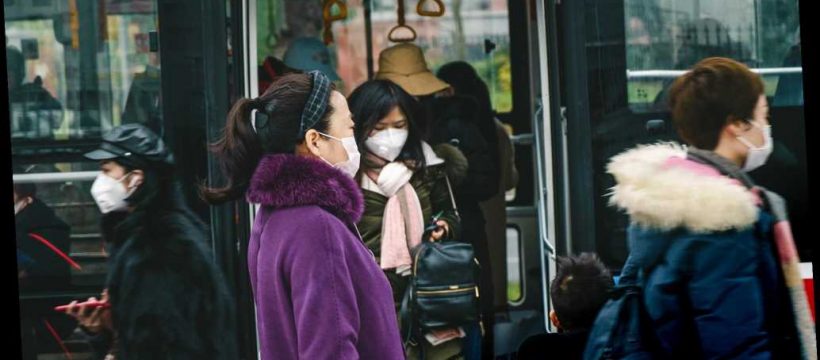With outbreaks raging in Italy, Iran, South Korea and other countries, US authorities now predict coronavirus will strike Americans here, causing “significant disruptions to our lives.” The warning came from Centers for Disease Control and Prevention official Nancy Messonnier at a Tuesday briefing.
Here’s what you need to know:
Is the virus spreading here now?
The only known US cases are travelers to China, their spouses and cruise-ship passengers. But people carrying the virus entered the United States before Team Trump imposed travel and quarantine restrictions on Feb. 2.
Those early arrivals are likely spreading the disease to others. As of Tuesday, the CDC insists that the virus “is not currently spreading in the community in the United States.” Maybe, but the CDC assessment is based on a lack of testing and actual information. They’re flying blind.
In six locations, including New York, federal labs are starting to test specimens from patients with flu-like symptoms to try to identify where the virus might already be.
Even that testing won’t tell the whole story. People with no symptoms spread it, explains Marion Koopmans of the World Health Organization. It could become a “pandemic,” meaning a disease that causes widespread death on several continents. Or it could fizzle out.
What should people do to protect themselves?
Stay out of emergency rooms unless you are severely ill or injured. For now, it’s the likeliest place to catch coronavirus.
Anyone unknowingly suffering from coronavirus will probably go there. That’s what Patient Zero in Italy did. When another coronavirus, SARS, struck Ontario, Canada, in 2003, an infected man waited for 16 hours in a crowded ER, infecting those around him and launching an outbreak that killed dozens.
Some countries are canceling public events, closing businesses and schools, and urging people to stay home. Not so in the United States, though Messonnier sees that coming and has warned families to prepare.
Meanwhile, if you take mass transit to work, wash your hands afterward and avoid touching your eyes, nose and mouth. The virus is transmitted mostly through coughs and sneezing, but also by touching surfaces like subway poles or chair rails after an infected person.
If it spreads, the CDC will recommend large-scale cleaning: Think daily disinfection of subway cars. Mayor Bill de Blasio and the Metropolitan Transportation Authority, are you listening?
Are US hospitals prepared?
Short answer: No. In the understatement of the year, the CDC advises health-care workers to “take care of yourself and follow recommended infection-control procedures.” Truth is, those procedures don’t work.
Even at Johns Hopkins, one of the highest-rated hospitals in the nation, research released last week shows doctors and nurses frequently spread bacterial infections from patient to patient, despite following CDC procedures.
Across the nation, 72,000 patients a year die from hospital infections spread mostly on unclean hands and equipment. If hospitals can’t stop that carnage, how are they going to control a virus that can also spread in tiny droplets in the air?
Health officials should be conducting boot camps to train hospital personnel in more rigorous infection control, similar to what’s done in Israel.
Who is most at risk?
Health workers and their families. This virus is so hard to contain that even top medical personnel are falling victim, despite access to protective gear. Iran’s deputy health minister, spearheading the battle, has been infected. Messonnier conceded that in America, there may be a problem supplying health workers with protective gear — a stunning admission of health bureaucrats caught unprepared.
How about a quarantine facility in your neighborhood?
The mayor of Costa Mesa, Calif., went to federal court to halt moving quarantined travelers from Travis Air Force base to a state facility in his town. Costa Mesa residents want to know who is going to care for these infected people and what will happen if they grow sicker and need hospitalization.
Israel, which has no local spread so far, has barred foreigners from participating in the Tel Aviv marathon and blocked foreign travelers from affected regions from entering. Here in America, CDC officials dodged questions on Tuesday about expanding travel restrictions and screening. The next few weeks will show which country is making smarter decisions.
Betsy McCaughey, a former lieutenant governor of New York, is chairwoman of the Committee to Reduce Infection Deaths.
Source: Read Full Article
